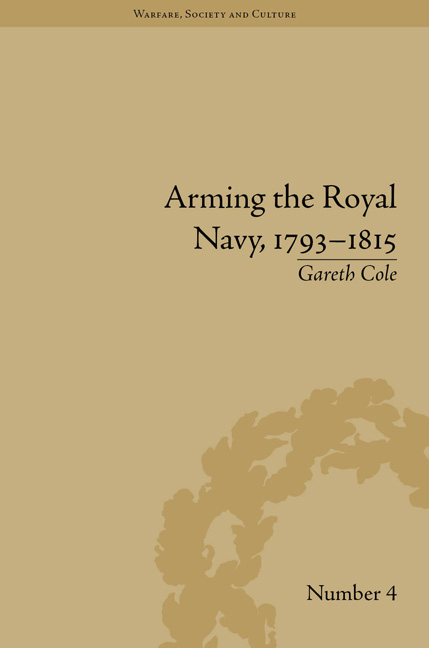Book contents
- Frontmatter
- CONTENTS
- Acknowledgements
- List of Figures and Tables
- Introduction
- 1 The Office of Ordnance and Its Mode of Operation
- 2 Ordnance Relationships with Other Government Departments
- 3 Relations between the Ordnance and Its Contractors
- 4 The Supply of Gunpowder to the Royal Navy
- 5 The Supply of Iron Ordnance to the Royal Navy
- 6 Ordnance Shipping
- 7 The Operations of the Ordnance Outports
- Conclusion
- Notes
- Works Cited
- Index
3 - Relations between the Ordnance and Its Contractors
- Frontmatter
- CONTENTS
- Acknowledgements
- List of Figures and Tables
- Introduction
- 1 The Office of Ordnance and Its Mode of Operation
- 2 Ordnance Relationships with Other Government Departments
- 3 Relations between the Ordnance and Its Contractors
- 4 The Supply of Gunpowder to the Royal Navy
- 5 The Supply of Iron Ordnance to the Royal Navy
- 6 Ordnance Shipping
- 7 The Operations of the Ordnance Outports
- Conclusion
- Notes
- Works Cited
- Index
Summary
There has recently been an attempt by historians to re-evaluate the relationships between the British state and the merchant contractors that enabled the state to function as a military entity. Gordon Bannerman has looked at the Seven Years’ War while Roger Knight and Martin Wilcox have looked at the period of the Great Wars with France. Both works are generally positive on the contracting systems they study. Bannerman states that the ‘remarkable feature of contracting in eighteenth-century Britain was its efficiency’, while Knight and Wilcox conclude more generally about government departments and their employees that ‘their administrative acumen and their effective engagement and management of countless contractors gave Great Britain the decisive edge in the Great Wars with France’. These two recent books build on the work of David Syrett, Norman Baker and Arthur Bowler. These three, all writing about different aspects of the contracting process during the American War of Independence, show that, generally, the system was effective without being efficient. These works have proved invaluable as a basis for the current study as they provide the backdrop of administrative action and reform that also existed within the Ordnance.
Military forces will always need supplies and ‘no government can do everything’. However, what was unusual about the Office of Ordnance was its decision from the second half of the eighteenth century to increase state manufacture in certain essential materials.
- Type
- Chapter
- Information
- Arming the Royal Navy, 1793–1815The Office of Ordnance and the State, pp. 55 - 68Publisher: Pickering & ChattoFirst published in: 2014



